Speakers
📢 Here are the speakers we have for this event. We will also hear from you – the event is all about taking part.
Why Transparency & Feedback is the Key to a Healthy Workplace
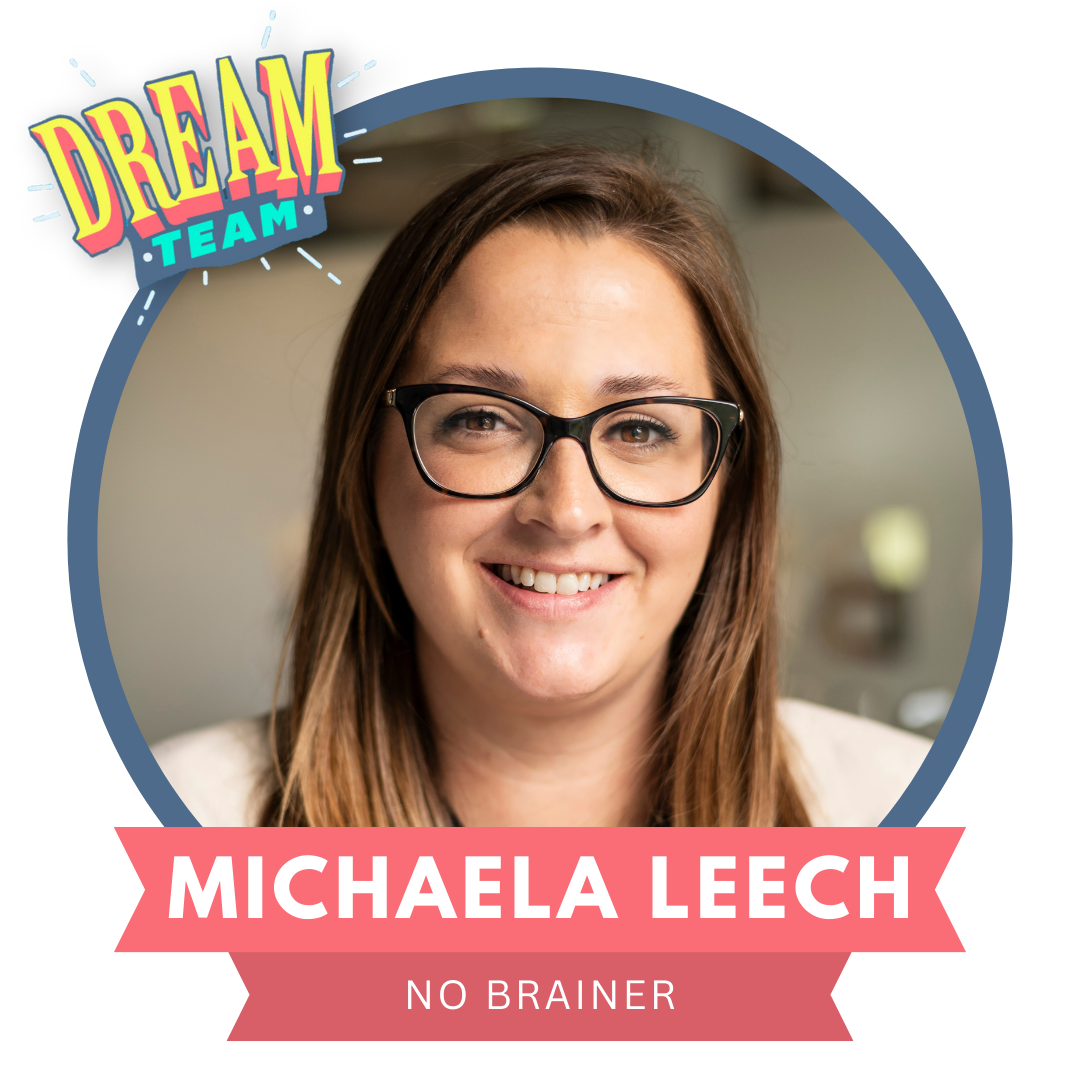
“I’ve worked in places before where they listen to feedback, but then nothing really ever happens. You say that you want to know what our opinion is, but it’s not going to change anything,” says Michaela Leech, people and operations director at No Brainer.
This is a common problem amongst a lot of agencies. The intentions are good, but most employee feedback is heard once and then never picked up on again.
But that’s not the case at No Brainer – one of Campaign’s ‘Greatest Places to Work’ 2023. They actively go out of their way to listen to their employees.
“We have bi-annual listening surveys,’ explains Michaela. “I always present back the results on them and what we’re going to do on it. Every level within the business gets a listening group once a quarter with the founders.”
“We’ll take action on the feedback quite quickly, too. If there’s something that everyone is saying is an issue, or could be done better, we’re small enough and agile enough that we can make it happen quite quickly.”
Michaela is one of the main reasons No Brainer won the Great Places to Work certification. As people and ops director, she’s successfully weaved together both a people-led and a processes-led approach to sustain an excellent growth curve for the agency – and maintain a fully functioning hybrid working model.
“We’ve been on a steady growth curve since I’ve been here, about 20-30% growth each year.”
“I want to give people a super positive first job experience. Whether they stay with us or not, I want them to look back on us and think ‘God, I loved my first job. So we’re now working more on the process side to support all the people stuff we’ve been doing. ’”
At Dream Team, Michaela will delve into how No Brainer has mastered the art of listening to their employees, embedding it into the way they operate as a business, and how this has helped accelerate growth for the agency.
The Advantages of Being a People-First Business
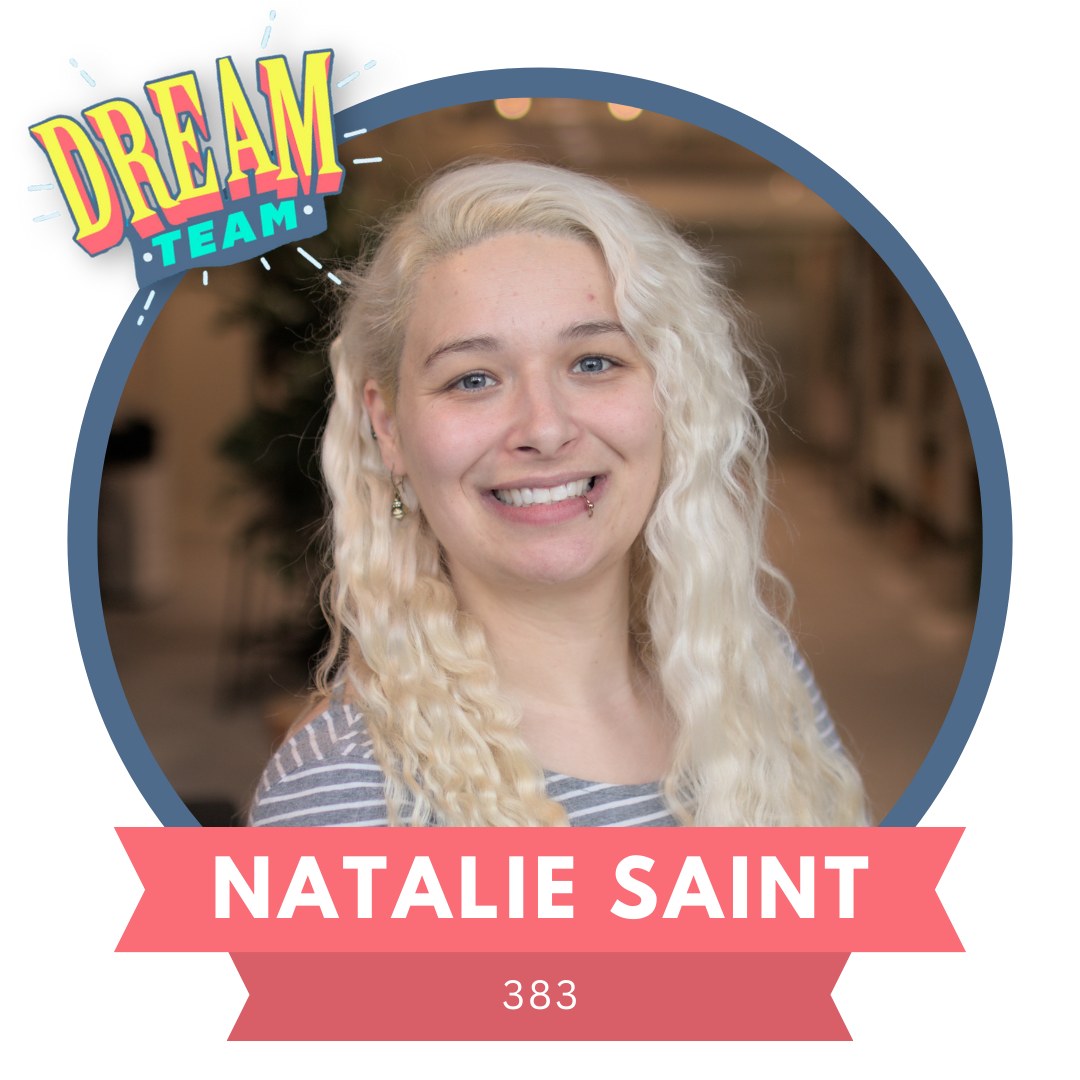
“Everyone talks such a big game about company culture, but if your culture is crap, people will leave,” says Natalie Saint, senior operations manager at 383..
Most agencies talk the talk when it comes to company culture – especially post-covid. But how many actually practice what they preach?
Natalie says that for agencies that foster a genuinely great place to work, it’s not much of a challenge to hold onto great talent.
“People talk, don’t they? If your culture is bad, people won’t join and they won’t look to work for you,” says Natalie. “You’ve got to be thoughtful of your people because they are the business.”
At 383, Natalie and her team took some massive leaps to become B-Corp certified– also earning them the ‘Best Workplace for Women’ award in 2023.
But how did they manage it?
It all comes down to:
- Workplace flexibility – “You want to try and give your people as much as possible to entice them to stay – or to return if they depart. We try to do sabbaticals and all the things that make the job fun and beneficial.”
- Maternity leave – “We’ve got women in the business who have children and they want to leave to go look after their child. When they come back into the business, we want to make sure they’re in a financial position where they can choose to do that, as opposed to have to do that.”
- Employee input and representation – “We have a 383 ‘council’, which is a way for all of our people to have a representative in their departments, to come forward and give ideas.”
- The right level of transparency – “We try to be as transparent as possible so there’s no scaremongering, and everyone has psychological safety.”
At Dream Team, Natalie will delve into how being a people-led company turned 383 into the B-Corp certified and Best Workplace for Women agency it is today, and why you might want to think about doing the same.
How to Balance Global Social Change with Running an Agency
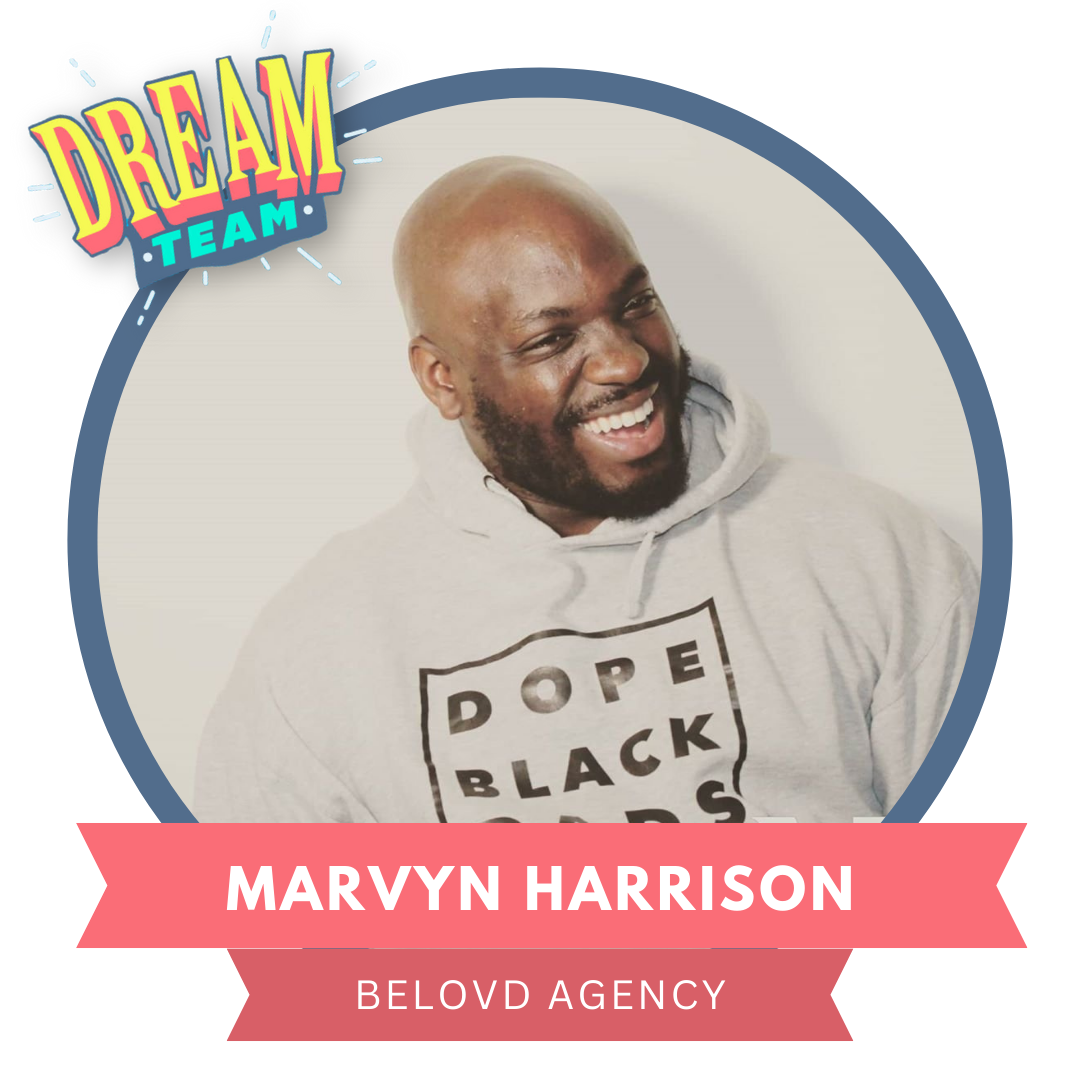
When you’re running an agency, it’s important to take a step back once in a while to look strategically at what you’re doing – otherwise how will you grow?
But when you work for yourself, rarely do you get that time to reflect.
Nobody knows this better than Marvyn Harrison, founder and chief vision officer at BELOVD.
Marvyn was at the forefront of social change in 2020. When protests erupted across the globe in response to the murder of George Floyd, Marvyn was sitting down with politicans, having conversations about how those in power can do better.
“I just gave myself to to the mission. I didn’t ask any questions, I just knew I had to do something,” he says. “But I worked so hard I actually got ill off the back of it. And it took two years for my body to regulate from doing those 18-hour days and being on every zoom call and sitting down with everybody.”
It’s easy to get lost in your agency’s mission, especially if you are the person that crafted it. What’s difficult is learning how to take a step back to reflect on what’s working, and what isn’t.
“I’m really proud of the work that we did. We helped 86 companies in those first six months, and everybody got their hands messy,” says Marvyn. “But sometimes you have to be quite smart about how you give yourself to these big moments – because the impact can be greater and last longer than the actual moment does.”
“I think now that I’ve done it, I understand how to do it better. So now we have the processes in place to give support. It’s much more structured than before, where it was just brute force and energy.”
Marvyn’s agency grew quickly. This not only forced him to take stock of how the business operated, but also how the team would be structured going forward.
“It requires a consistent balance – something that we’re always trying to refine. For example, at the end of each year, we normally do a slight restructure to support the work we know is going to be coming in. Like, we’ve seen an increase in marketing and comms work, which wasn’t necessarily on our agenda.”
“But we also have to look after people. We can’t just go around changing the company with very little notice. So it’s a real interesting balance of things. It keeps me on my toes.”
At Dream Team, Marvyn will share his story of building an agency while standing at the forefront of social change. He’ll take us through:
- How the right processes can prevent overwhelm and wellbeing issues
- The realities of running a global consultancy network and a constantly changing team
- How to foster a consistent company culture across multiple continents
- Finding the right balance between stability and innovation
If you’re looking for inspiration on how to stay true to your agency’s culture while adapting to change, this is not one to miss.
How We’re Empowering Our Team to Develop in a Hybrid World
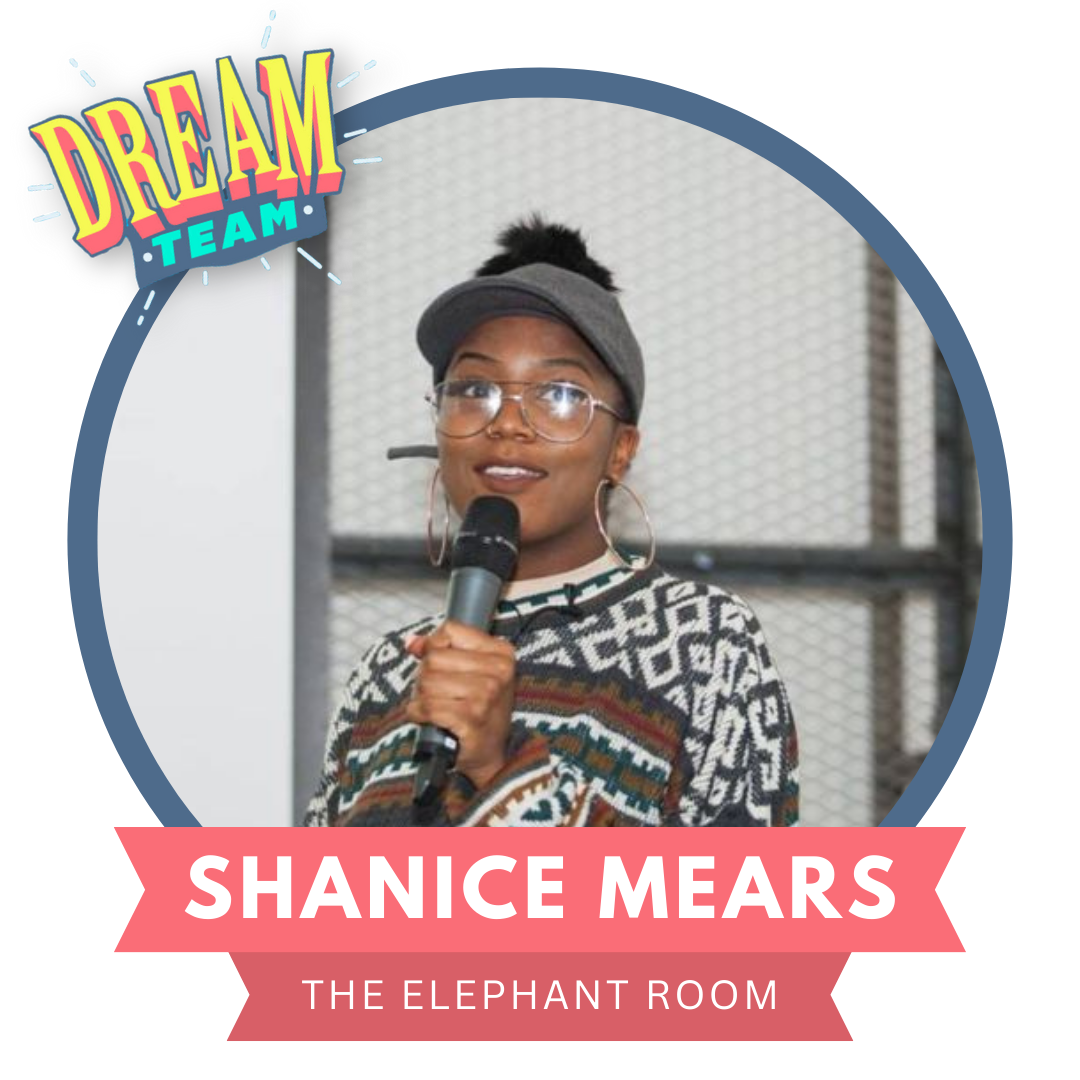
Just about everyone has had a manager that wasn’t very good at managing. Maybe they were friends with the boss and got a leg up that way, or perhaps they bided their time and were granted a promotion purely based on longevity.
But what knock on effect does that have on junior staff?
“‘Some people are brilliantly shit at their job’ I’ve often been told. It’s sad, but true,” says Shanice Mears, Co-Founder and Head of Talent at The Elephant Room. “Some people who have been in their job for 25 years plus – have made a shitload of money, and they just don’t truly care what’s happening to the junior at the bottom.”
“I think that’s the reason why we have such bad management and bad leaders now. 10-15 years ago, people weren’t taught how to manage other people, or to be empathetic. They just progressed in their career and made more money. And now they make so much money, they just don’t care.”
So at Elephant Room, a key principle for the business is to support the development of their team – setting them up with the skills to not only flourish in their sector, but also developing leadership ability.
“I think a lot of people underestimate development in agencies. Development takes not only money, but also a time investment – and that’s really important,” says Shannie. “We can’t be that generation to make that same mistake as before. We have to be accountable. Therefore, we have to say the reality of what things are.”
“It’s a really hard thing to hear but, the reality is, we can’t offer you more anything for just doing your job, so development is key”
But it doesn’t stop there. As Head of Talent, and a Birmingham native, Shannie is keen to reduce the London-centrism when it comes to recruiting talent.
“A lot of people don’t always know that I’m not from London, so I like to make sure that there’s access for people outside of the capital city. And how, as an agency, we can operate in that way –giving the opportunity where we can.”
However, as always, balance is key here. For Shannie and her co-founder Dan, It’s incredibly important that their team members are invested in what the company does, and how it does it.
“There’s a reality to building the business that we wish to build. We know where we want to be –and everyone in the company has to also be aligned to that,” she says. “So there are certain behaviours we just can’t entertain. Not because we’re not empathetic, or ‘cool’ but because we just might not be the right place for them. I think a lot of people are sometimes afraid to say that.”
“I came from a really big agency, and it wasn’t for me. I wanted to work in a much smaller, leaner team. But for some people, they thrive in big corporations. So it’s helping people understand where it is that they’re gonna thrive, and where they’re going to feel happy about going to work every day.”
At Dream Team, Shannie will share how she’s empowering her team to develop their skills, whilst making sure everyone remains true to, and invested in, the agency’s values. She’ll delve into the balancing act of nurturing an agency culture in a flexible working environment, and why transparency is the key to being an inclusive employer.
